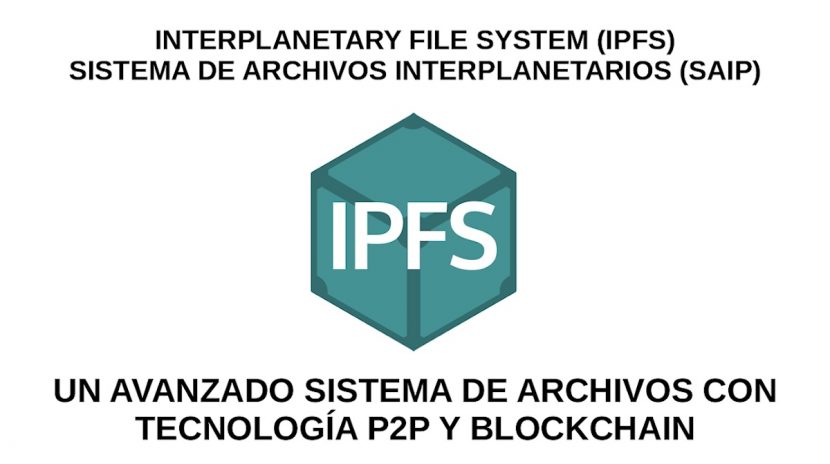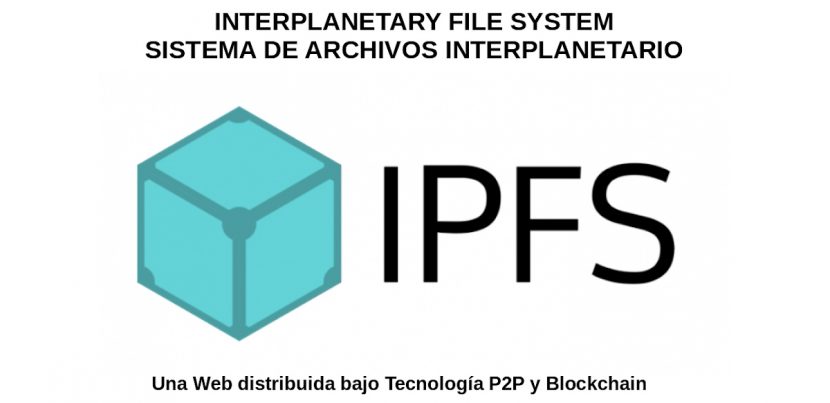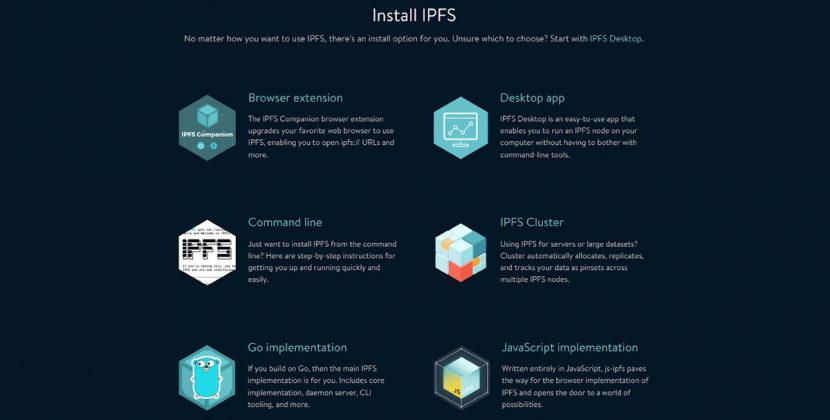
IPFS: An advanced file system with P2P and Blockchain Technology
IPFS promises to drive a Distributed webBecause it is a P2P hypermedia protocol (Peer-to-Peer - Person to Person) designed to make the faster, safer and more open web.
It owes its name to the initials of the phrase in English, Interplanetary File System, which in Spanish means, Interplanetary File System, and that in fact it is, an advanced File System with P2P and Blockchain technology.

Like the Blockchain Technology, which is still unknown to many, IPFS which is supported by it, is even more so. But what is more and more mentioned in the technological field, since it represents the internet transformation, as we know it today.
So IPFS, could complement or replace the current Hypertext Transfer Protocol (HTTP), which is the one that currently, and at a global level, executes information transfers in the cloud (web). Thus, IPFS aims to transform the current actions of the Internet based centralized servers on a fully distributed website under P2P and Blockchain technology.
In order to become a distributed file system, with directories and files, that can connect all computing devices and digital content, globally, with the same file system.

IPFS: Interplanetary File System
In his official website there is a lot of useful information about said technology, also on its official site at GitHub. However, among the most remarkable that can be said about it is the following:
IPFS features
- Its goal is to make the web faster, safer and more open.
- It uses encryption technologies at the file system level.
- It is a completely decentralized architecture from scratch.
- It allows the creation of fully distributed applications.
- It is a mountable global file system using FUSE technology.
- The content linked to the use of HASH guarantees its authenticity.
- It combines the use of technologies, such as, Blockchain, Kademlia, BitTorrent, and Git.
- Hypermedia distribution protocol, driven by content and identities.
- It has a naming service called, IPNS, which is an SFS-inspired naming system.
- Its operation resembles a single bittorrent swarm exchanging git objects.
- It is modular, because it supports many layers of work with different functionalities and technologies.
- Dual web, that is, it allows you to view documents as in the traditional web, that is, by the classic way of HTTP, riding a
«https://ipfs.io/<path>», or in the modern way in browsers or applications, in the way IPFS:«ipfs://URL»o«dweb:/ipfs/URI».
Operation
IPFS is a distributed filing system which guarantees permanent availability of them, by allowing multiple copies in the different nodes. that support the network. IPFS manages communications based on the content handled, replacing the name (IP address or URL) as is currently the case, providing a block storage model for high-performance content, with addressable hyperlinks for your content.
Also, use IPFS identifiers which are linked to a Cryptographic hash of the content, which guarantees in a cryptographic way, that it represents the content of that file as original, until its next modification, no matter how small. This brings as a benefit, content protection against unauthorized manipulation, and its degradation, that is, favors the immutability of content.
Finally, among many other more interesting things about this technology, is the fact that being node network, mitigates or cancels access failures to content, since if communication with the content hosted in one node of the network fails, it can be accessed in another. And also, in IPFS, communications are usually more efficient, since transmission through several nodes simultaneously is something allowed.
Installation
To download the source files or cross-platform installers (Windows, MacOS and Linux) available and carry out the installation and use procedure of its different applications, you can start by consulting the following link: IPFS Desktop en GitHub.

Conclusion
We hope that this "useful little post" about «IPFS», meaning «Sistema de Archivos Interplanetario», and which is actually, an advanced File System with P2P and Blockchain Technology with a global use and scope, is of great interest and utility, for the entire «Comunidad de Software Libre y Código Abierto» and of great contribution to the diffusion of the wonderful, gigantic and growing ecosystem of applications of and for «GNU/Linux».
And for more information, always do not hesitate to visit any Online library as OpenLibra y jedit to read books (PDFs) on this topic or others knowledge areas. For now, if you liked this «publicación», don't stop sharing it with others, in your Favorite websites, channels, groups, or communities of social networks, preferably free and open as Mastodon, or secure and private like Telegram.
Or simply visit our home page at DesdeLinux or join the official Channel Telegram from DesdeLinux to read and vote for this or other interesting publications on «Software Libre», «Código Abierto», «GNU/Linux» and other topics related to «Informática y la Computación», and the «Actualidad tecnológica».
Is this type of technology already being supported or in plans for browsers to implement it?
Greetings Luiguiok! IPFS has its own desktop client and other apps to navigate and access this technology. Until now it is not possible through traditional browsers.